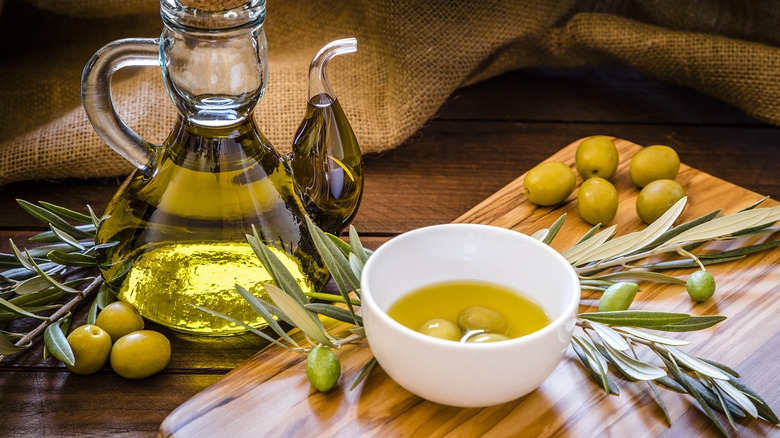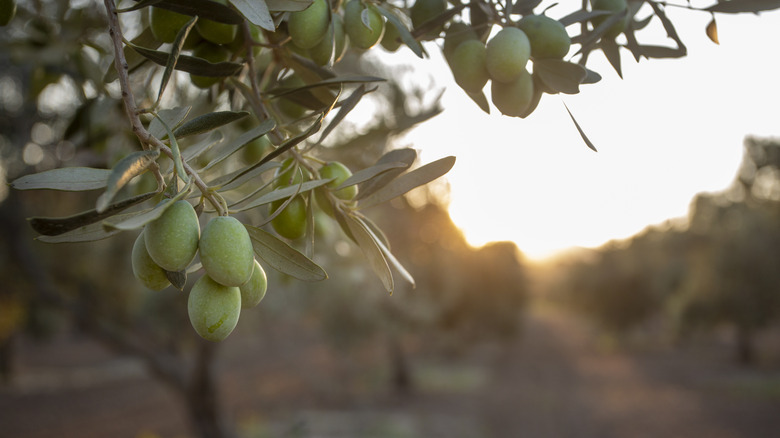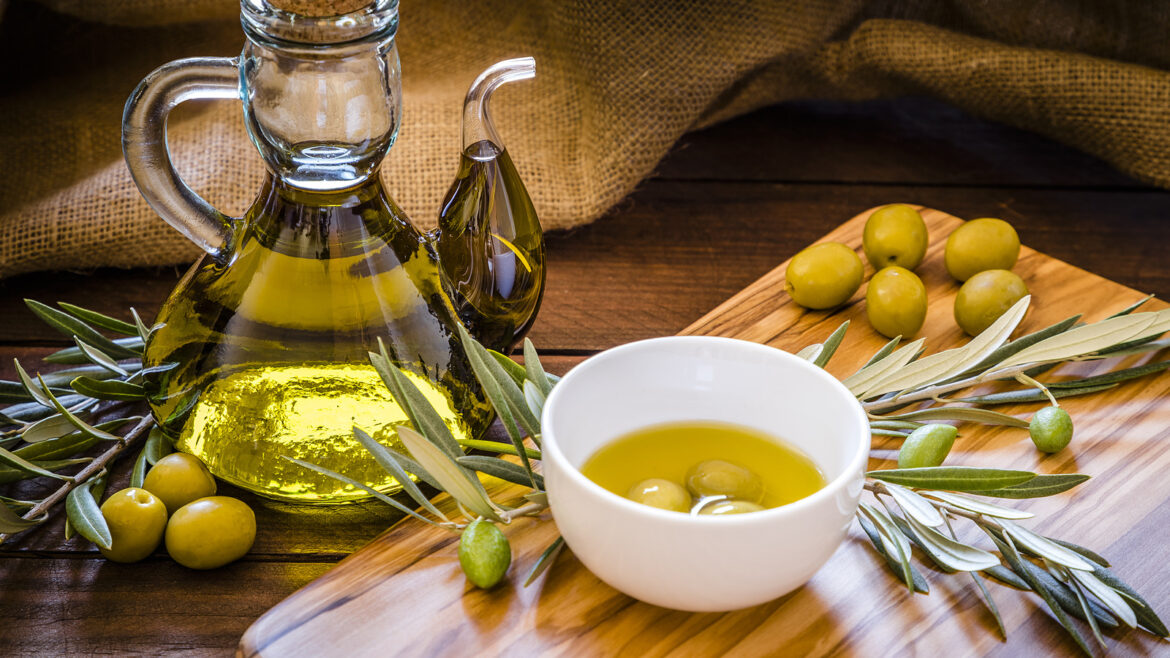
Carlosgaw/Getty Images
Olive oil is a special ingredient. Lower-grade olive oil is often relegated to background roles in the kitchen, such as being used to make a vinaigrette or fry an egg, where its flavor largely goes unnoticed. But at its best, olive oil is worth celebrating. And Turkish olive oil can be especially wonderful, as Ayesha Nurdjaja, executive chef at Shuka knows well.
We caught up with her at The New York City Wine & Food Fest, and she made her appreciation of this particular ingredient plain with a simple statement: “I love Turkish olive oil,” she told us. Elaborating on what makes Turkish olive oil in particular so special, she noted its deep color and sharp flavor, explaining, “Olive oil to me is like a diamond … You need the good stuff, and the stuff that comes from Turkey is really delicious.”
Turkish olive oil may not be on the average American consumer’s radar quite as much as, say, Italian or Greek olive oil, but they are a major producer. In fact, Turkey is one of the top three producers of olive oil globally — alongside Italy and Spain — and olives have a long history in the region. You can see the importance of olive oil clearly when you look at some of the most common Turkish dishes. A bowl of muhammara benefits tremendously from high-quality olive oil, and a nice, crusty bread dipped in good olive oil and za’atar is a wonderful thing. But what is it that makes Turkish olive oil so prized?
What makes Turkish olive oil so special?

Esin Deniz/Getty Images
Turkey is a large country, and the climate varies throughout, so it is difficult to make broad, sweeping statements about the product across the board. But there are a few things that we can say.
First, the climate in Turkey — at least in some places — is absolutely ideal for olives. The hot summers and mild winters, typical of much of the Mediterranean, are great for growing olives. In fact, Turkey and the surrounding region are likely where olives originated. The exact history of the olive tree has not been pinned down, but studies have suggested that cultivation of olives began somewhere between 6,000 and 8,000 years ago near the border between Turkey and Syria. Given its long history in the region, it is little surprise that the oil produced there is of exceptional quality, but there’s more to the story than just the right growing conditions.
On top of being a good place for cultivation, the varieties of olives and techniques used vary somewhat from what you might see elsewhere. The types of olives used have high levels of polyphenols, which are what give olive oil both its delicious flavor and its health benefits — these are the antioxidants you hear about in olive oil. Additionally, a significant portion of the olives used in Turkish olive oil comes from family farms, where they are harvested by hand and cold-pressed at peak ripeness, resulting in a superior product.
It is certainly not the only country making delicious olive oil, but it is definitely worth picking up a bottle for your pantry. Next time you are looking for the best olive oil for dipping your bread or drizzling over a plate of hummus, you’ll have just the thing.


Dining and Cooking